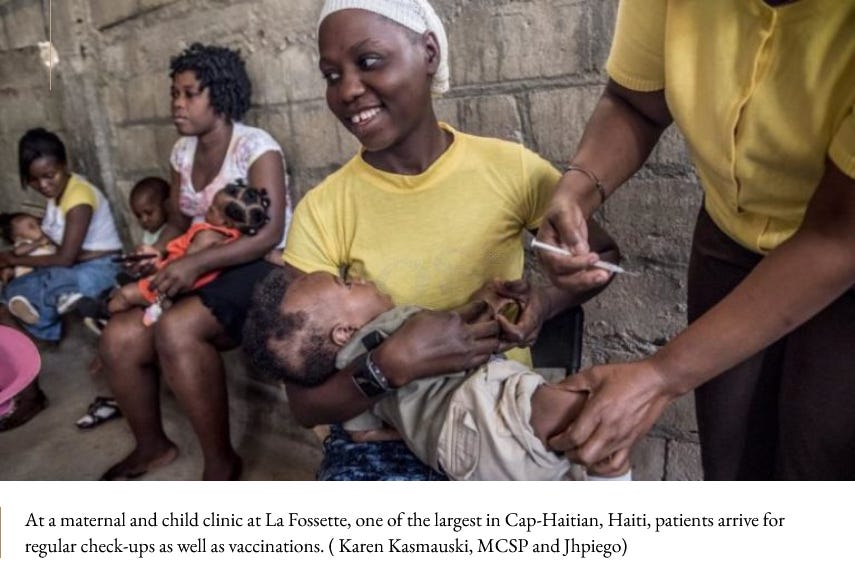Foreign Aid Can Be In America’s Interest
The Trump administration scaled back or cut more than 80% of USAID related foreign budget, much of it ridiculous liberal nonsense about feminism or intersectional ideas. These cuts should be championed, but now the administration risks becoming overzealous. The administration has cut hundreds of millions of dollars for NGOs and programs that purchase childhood vaccines in the poorest countries in the world with a focus on Africa. The administration is also currently performing a review of its foreign aid to be released soon (it’s already been extended 30 days). The administration has also cut funding to countless studies looking at disparities between and within communities whose members contract HIV at high rates in both the US and Africa. This was done under the fantastic anti-DEI initiative, but the fact remains that certain populations of people—especially those in the so-called LGBT community and minority groups—continue to contract HIV at very high rates. It is useful to know the reality of how deadly disease spreads in these communities.
It is in the national interest of the United States and the interest of the broader West and frankly the whole international community that the United States continue to fund crucial disease-related research. Unlike the non-issue of “gender-sensitive police reform in post-conflict societies” the issue of disease is foundational to human flourishing.
Africa, parts of Central Asia, and regions of South Asia will not be able to develop like their neighbors have if issues such as endemic disease are not dealt with. Endemic diseases like HIV, tuberculosis, malaria, and neglected tropical diseases (NTDS) drive instability in the poorest parts of the world. This instability plays a significant role in driving economic migration to the West and especially to Europe.
These endemic disease issues also drive population growth in Africa. Governments and NGOs are forced to direct incredible resources into dealing with these diseases and therefore lack the resources to curtail their population growth through family planning measures (a goal of many African governments).
This incredible level population growth results in near-perpetual slum growth, in a lack of social stability, in strained and often failing services, and ultimately in instability on the continent. Trash and plastics cannot be properly disposed of, because there are no funds for these services—vaccine clinics matter more than trash collection when it comes to sick children. Governments lack resources to fight ocean piracy or to properly police their streets. Lawlessness and criminality become commonplace while everyone focuses on trying to prevent disease-related deaths among their family members.

Unlike women in policing, it is crucial that the rampant diseases in Africa be brought under control. Sub-Saharan HIV spread has been reduced by 60% since 1995 while between 2000 and 2015 the incidence of Malaria was reduced by 41%. A huge part of these efforts has been early education, preventative measures, and in the case of some diseases early childhood vaccination. It is not in the interest of the United States to reduce funding for these crucial areas of study and on-the-group services. Africa nations will continue to falter under the weight of these diseases and massive waves of the desperately poor will continue to make dangerous journeys to Europe.
A healthier Africa is in the national and civilizational interest of the United States and the West. We want to give Africans a foundation upon which to develop their continent as Rwanda or Vietnam have developed from their backwater status and into rising economic powers. The ultimate goal of any Western foreign aid spending should be to deal with these foundational problems of disease or lack of electrification (to cite another example) and from there the continent can develop, reduce population growth and overcrowding, and ultimately stabilize enough that mass migration is reduced.

